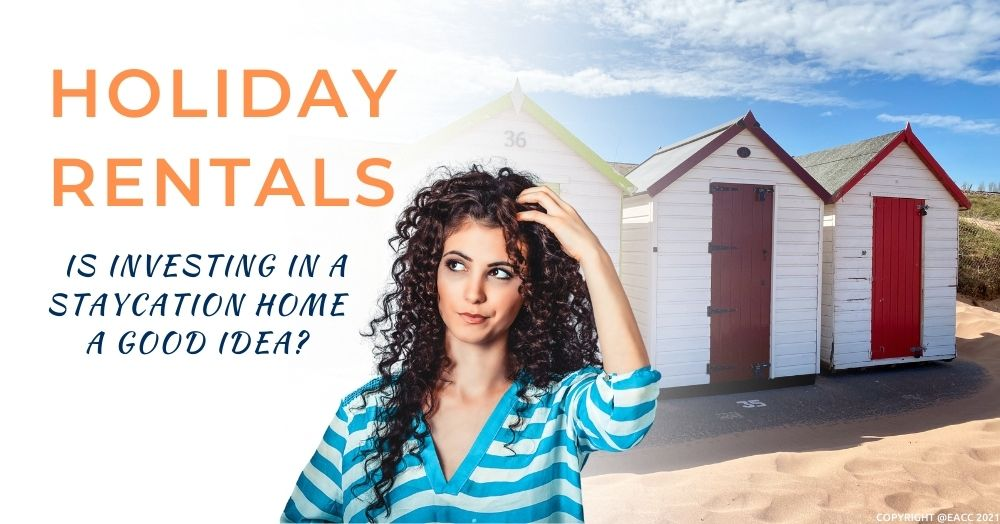In this two-minute read, we look at the advantages of buying a holiday rental property.
Planning a foreign holiday over the last two years has taken a lot of patience, caused a lot of frustration, and has seen lots of Brits opting for a staycation.
With amber and green lists changing frequently, mandatory PCR tests, and the dreaded threat of hotel quarantine, the demand for UK holiday rentals has gone through the roof. But are they really worth the investment?
Here are five reasons why buying a holiday rental property may work for you.
1) Expect a higher rental yield
In peak holiday season, holiday rentals can earn more in a week than a buy-to-let can in a month.
A decent holiday property can earn as much as an
11% rental yield (according to which.co.uk) compared to a buy-to-let which normally earns around 4 – 8% per annum. Be sure to do your sums before investing and subtract any agency or mortgage fees before working out your potential yield. It’s also worth remembering that more expensive destinations offer lower yields.
2) Holiday home for you
One of the most obvious benefits of a holiday rental property is a ready-made staycation home for you and your loved ones. Keep in mind, to earn the highest income from your rental property during peak seasons, you’ll want it rented out rather than staying there yourself.
3) Higher capital appreciation
If you’ve got your eye on a holiday rental that requires some TLC, you could enjoy an increase in property value over time and as the destination becomes more sought after. However, if you’re buying in a popular location, you might be paying a premium where prices have already peaked.
4) Less wear and tear
Buy-to-let landlords often have to pay out for maintenance and repairs at the end of a long tenancy. However, holiday rental properties are typically occupied for one to two weeks – so there’s less time for day-to-day damage.
The downside of lots of short-term guests is the need for a management agency to take care of housekeeping and general maintenance. Alternatively, you can manage the holiday let yourself and help guests with any issues during their stay.
5) Tax advantage
HMRC considers holiday rentals to be a business rather than an investment, so a landlord can enjoy more tax benefits than a buy-to-let owner. If the property is a Furnished Holiday Let (FHL), you might also be able to claim (limited) mortgage relief.
Always speak to a property/finance professional to find out about other tax advantages such as inheritance and capital gains tax and business rates instead of council tax.
For more information about buying a holiday rental property, contact us at Courtyard Property.

